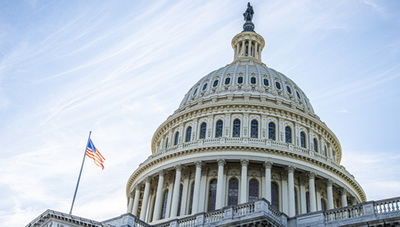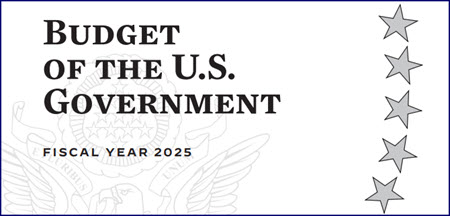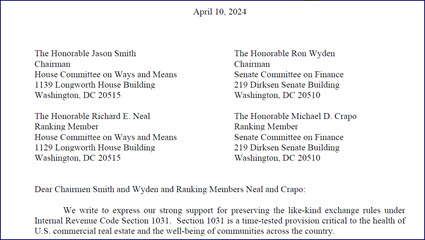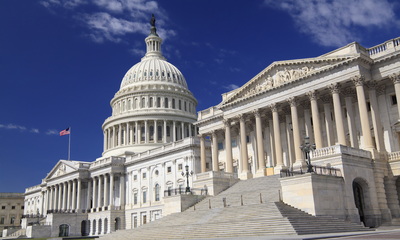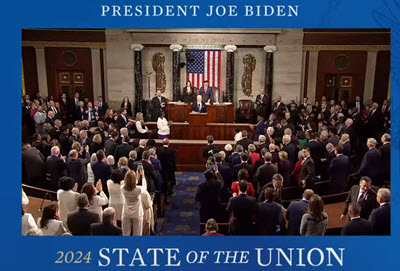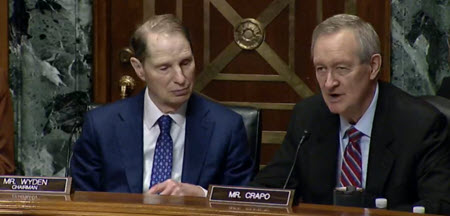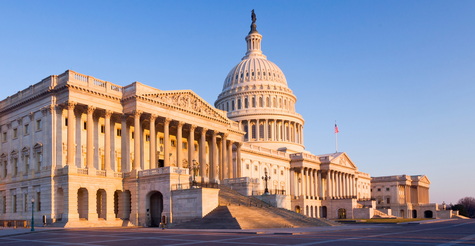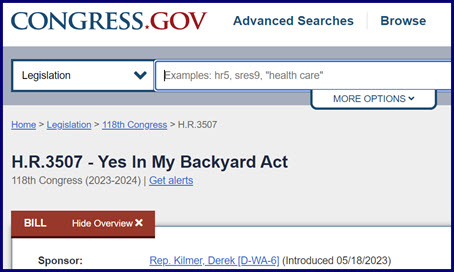
On Thursday, House Ways and Means Committee Members Mike Carey (R-OH) and Jimmy Gomez (D-CA) introduced the bipartisan Revitalizing Downtowns and Main Streets Act (H.R.9002), which would create a market-based tax incentive for converting older commercial buildings to residential use.
Revitalizing Downtowns and Main Streets Act
- The bill is a positive step forward in the effort to modernize U.S. real estate, create new and affordable housing, and strengthen cities and neighborhoods that continue to suffer from the aftereffects of the pandemic and changing business needs.
- “Between high housing costs and the rise of remote work, formerly prosperous neighborhoods across the country are struggling,” said Rep. Carey (R-OH). “The solution is right in front of us. But even though vacant commercial and office space is sitting unused, converting these properties into housing is so expensive it is often uneconomical. This bill will allow communities to meet their residents’ need for affordable, abundant housing and allow American downtowns and main streets to thrive.” (Rep. Carey Press Release)
- The bill would create a new and temporary 20% tax credit for qualified property conversion expenditures, modeled after the historic rehabilitation credit. (RER’S One-Page Summary)
- The total credit authority would be limited to $15 billion, allocated by state housing finance agencies based on feasibility and impact.
- Larger credits would be available for projects in rural areas, low-income census tracts, and economically distressed areas.
- The credit could be stacked with other federal tax benefits, including LIHTC, the rehabilitation credit, and Opportunity Zone benefits.
Roundtable Advocacy
- The Real Estate Roundtable has supported similar versions of conversion legislation, such as the Revitalizing Downtowns Act (S. 2511, H.R. 4759), introduced by Sen. Debbie Stabenow (D-MI) and Rep. Jimmy Gomez (D-CA). The Roundtable has also worked closely with the White House on administrative actions designed to provide low-cost financing for conversion projects. (Roundtable Weekly, April 19)

- “The Revitalizing Downtowns and Main Streets Act is a proactive, market-based policy measure that aims to breathe new life into underutilized commercial properties, create jobs, generate local property tax revenue, and help reinvigorate our nation’s cities and suburbs,” said Jeffrey D. DeBoer, President and CEO of The Real Estate Roundtable. “We commend the leadership of the bill sponsors for their vision and urge support for this critical bipartisan legislation.”
- The bill addresses and incorporates most of the recommendations a Roundtable-led coalition had collectively made to the Revitalizing Downtowns Act in comment letters submitted in October 2022 and June 2024.
- Since then, many states and localities have taken bold action to support property conversion efforts.
- Both letters are the product of a property conversions working group created by The Roundtable’s Tax Policy Advisory Committee (TPAC). The working group has reviewed and considered the challenges and impediments confronting potential property conversion activities. (Roundtable Weekly, June 28)
The Roundtable’s Tax Policy Advisory Committee will continue working with policymakers to advance tax policies that encourage and facilitate property conversion efforts.
